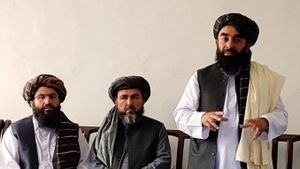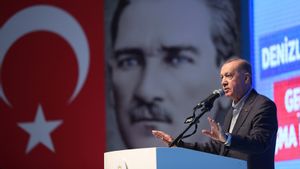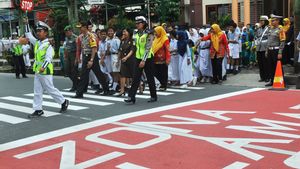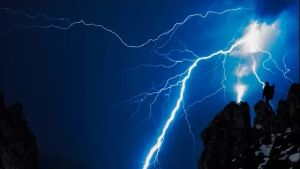
JAKARTA - The Israeli military is accelerating its operational plans against Iran due to the progress of the Islamic Republic's nuclear program, IDF Chief of Staff, Lieutenant General Aviv Kochavi, has warned.
"The progress of Iran's nuclear program has led the IDF to accelerate its operational plans and the recently approved defense budget is allocated to it", Kochavi said, citing The Jerusalem Post Thursday, August 26.
Kohavi commented as Prime Minister, Naftali Bennett, landed in the United States ahead of a meeting with US President Joe Biden and other senior officials. PM Bennett is expected during his first visit to the White House to encourage President Biden to strengthen his approach to Iran, scrapping efforts to revive the 2015 Joint Comprehensive Plan of Action (JCPOA).
"When we started planning the visit, a return to the deal seemed certain", PM Bennett said ahead of his departure on Tuesday.
"Since then, the time has passed, the president in Iran has changed and things seem a lot more uncertain. In our view, there may not be a return to the deal", Bennett continued.
In the absence of a diplomatic option that might prompt Tehran to give up its nuclear program, Israel's Chief of Military Staff believes Iran needs to realize that if it continues with its program, it will face tougher sanctions and military options to stop it.
Israel's 58 billion NIS defense budget set for the IDF in the coming year, is expected to allow the Israeli military to focus on the threat posed by Iran across the region, with some 3.5 billion NIS designated specifically for this.
Israel regards Iran's nuclear program as a major concern, although Iran has consistently denied seeking to build a nuclear bomb, tensions are rising as the West seeks to resume talks about reviving a deal to curb Tehran's nuclear program.
Previously, Kochavi had made it clear publicly that he viewed the JCPOA as dangerous, so he directed the IDF to prepare a new operational plan to attack Iran to halt its nuclear program if necessary.
For information, Iran is believed to continue to develop the ability to produce nuclear weapons arsenal and ballistic missiles capable of carrying nuclear warheads, at its nuclear facilities.
Iran is also prohibited under the JCPOA from transferring any weapons to third countries. Yet possessing more than 1,000 short and medium-range ballistic missiles, they allegedly continue to smuggle weapons into countries and non-state actors such as Hezbollah on Israel's northern border and Hamas in the Gaza Strip.
Iran has several types of rockets that can reach Israeli territory, including the Khorramshahr 2 with a range of up to 2,000 kilometers (1,243 miles) and the Shahab-3.
SEE ALSO:
Meanwhile, the IDF has acknowledged Iran's conventional missile threat is a major concern for Israel. Despite having multi-layered air defenses, it may not be able to deal with the intensive missile barrage fired by Iran and its proxy groups, such as Hezbollah in Lebanon or Shia militias in Iraq.
"The IDF is working systematically and in various ways to reduce Iran's influence in the Middle East", Kochavi said.
The IDF knows that the international community is not interested in a war with Iran, with each country dealing with its own internal problems, such as the ongoing coronavirus pandemic. But if push comes to push, the Israeli military has all options on the table to protect its citizens.
The English, Chinese, Japanese, Arabic, and French versions are automatically generated by the AI. So there may still be inaccuracies in translating, please always see Indonesian as our main language. (system supported by DigitalSiber.id)

















